Giro d’Italia GC analysis: Anything can happen, and it usually does
Dumoulin’s hopes dashed as Roglic shows his mettle
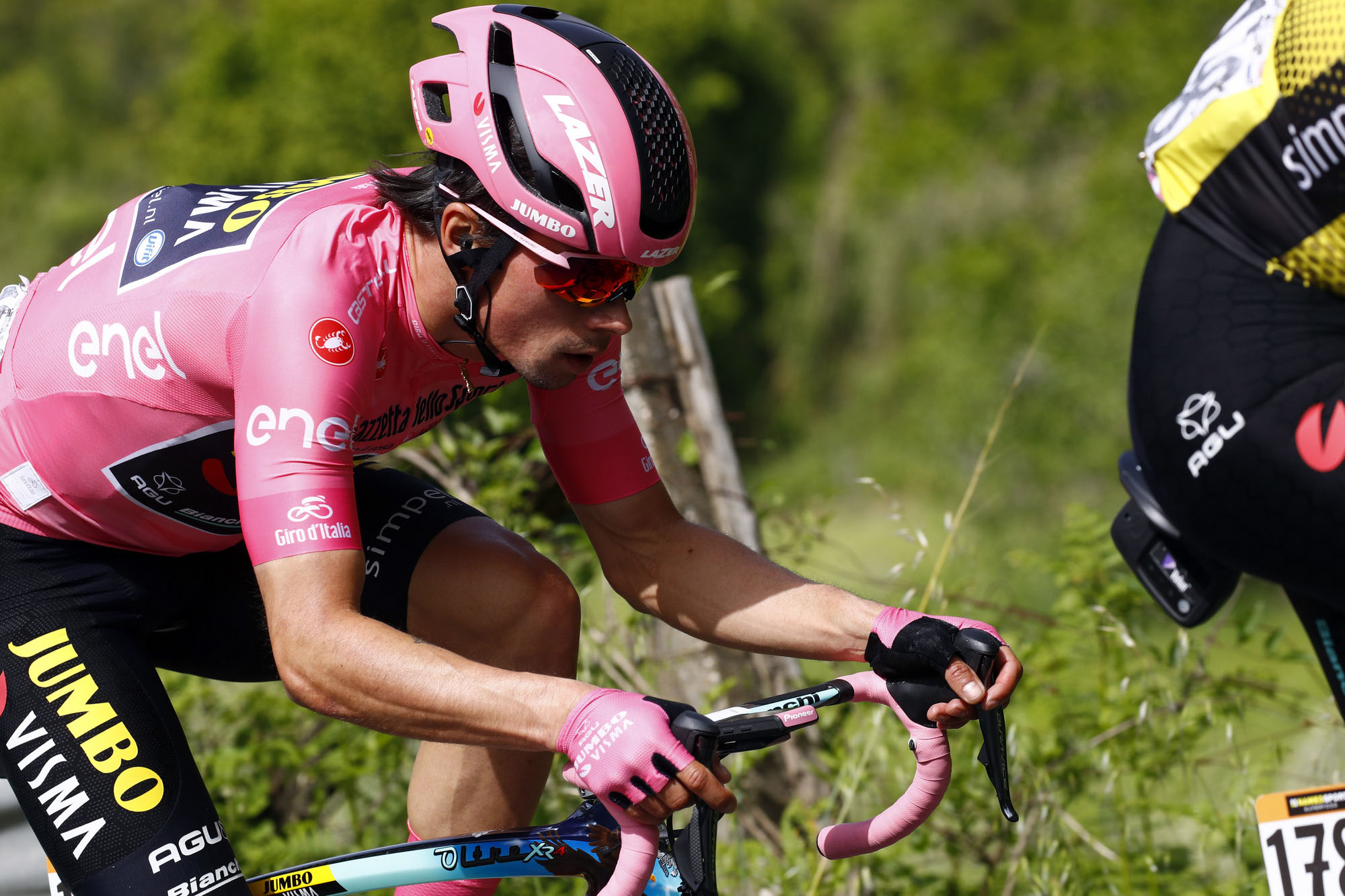
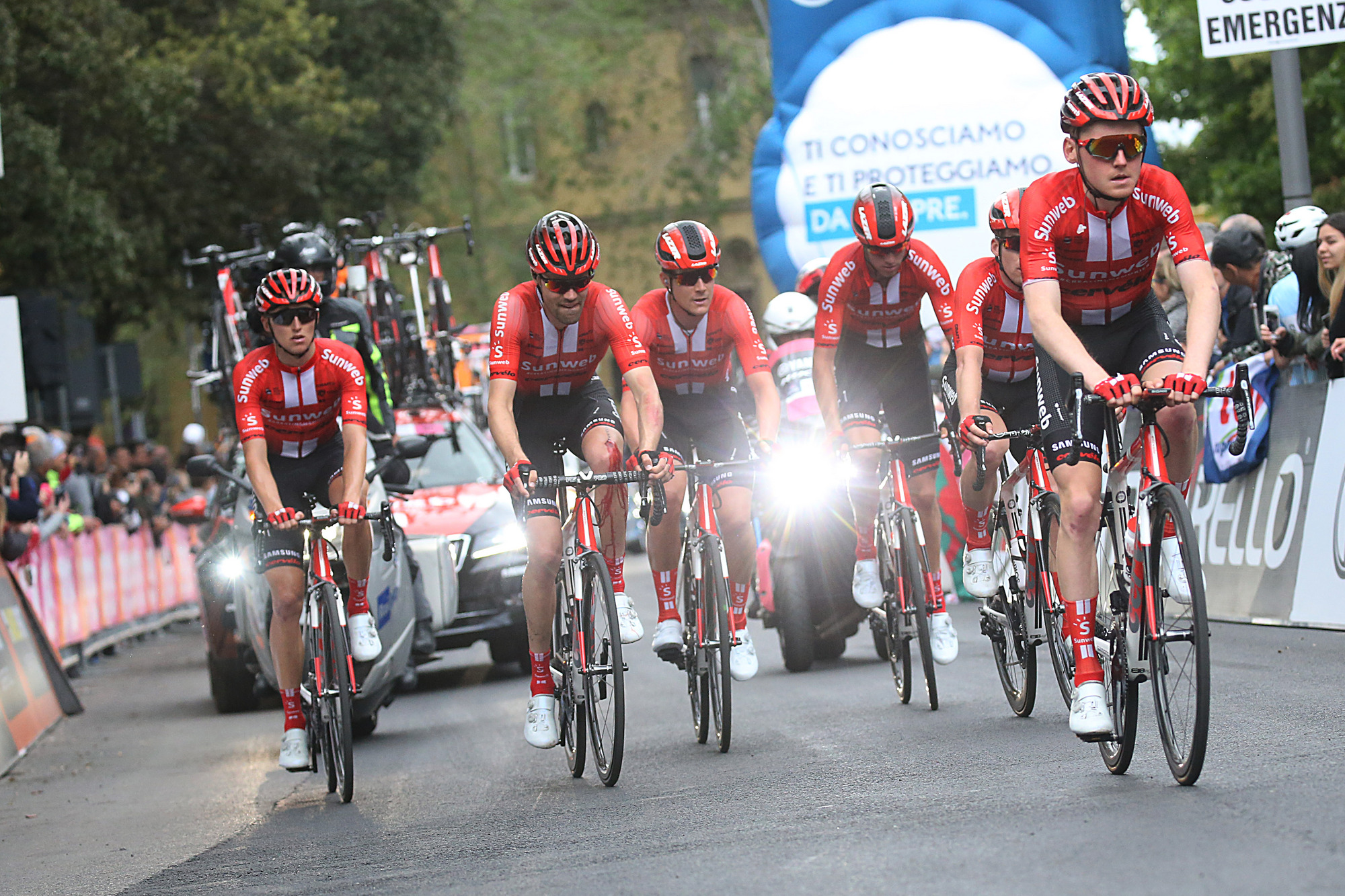
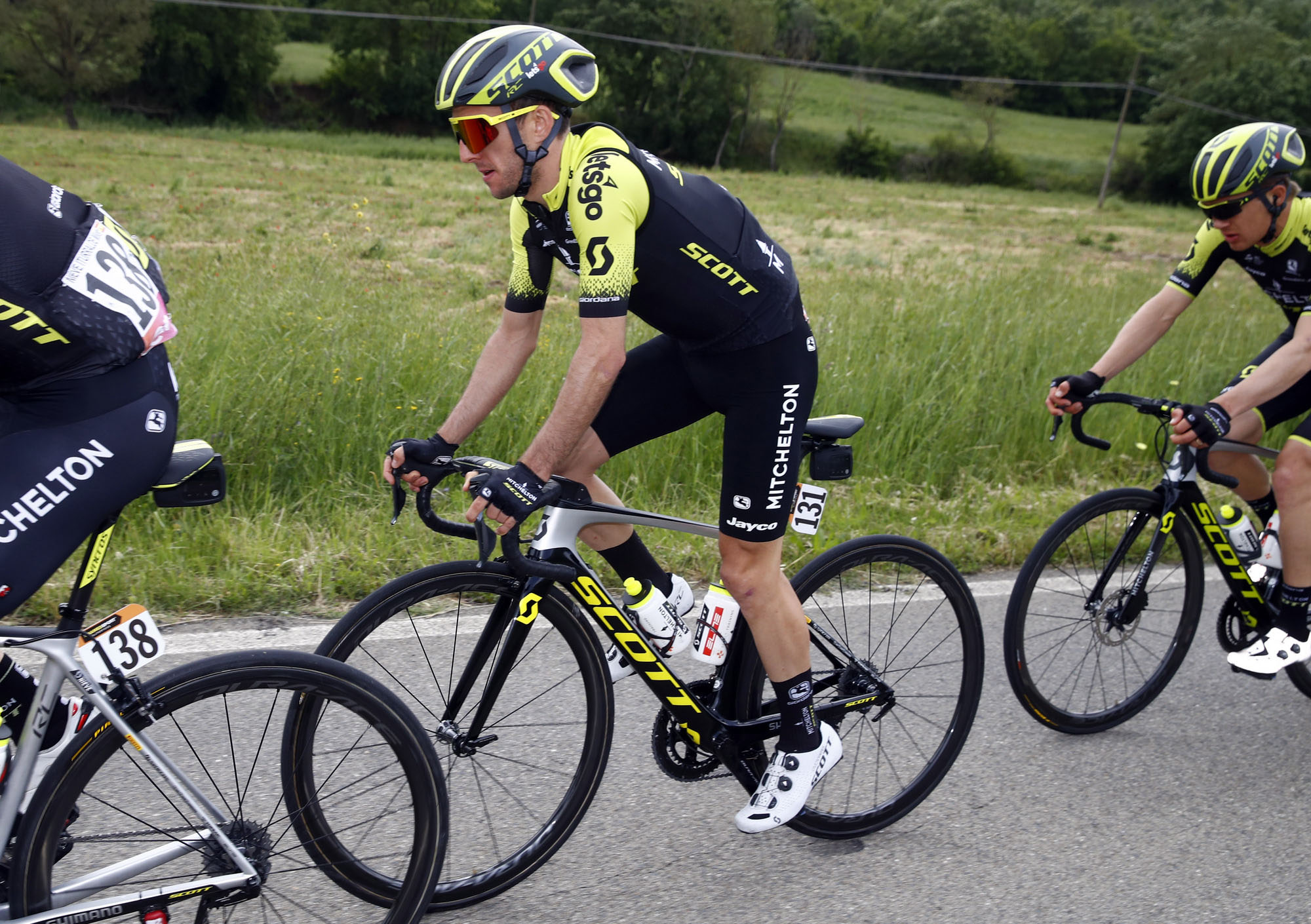
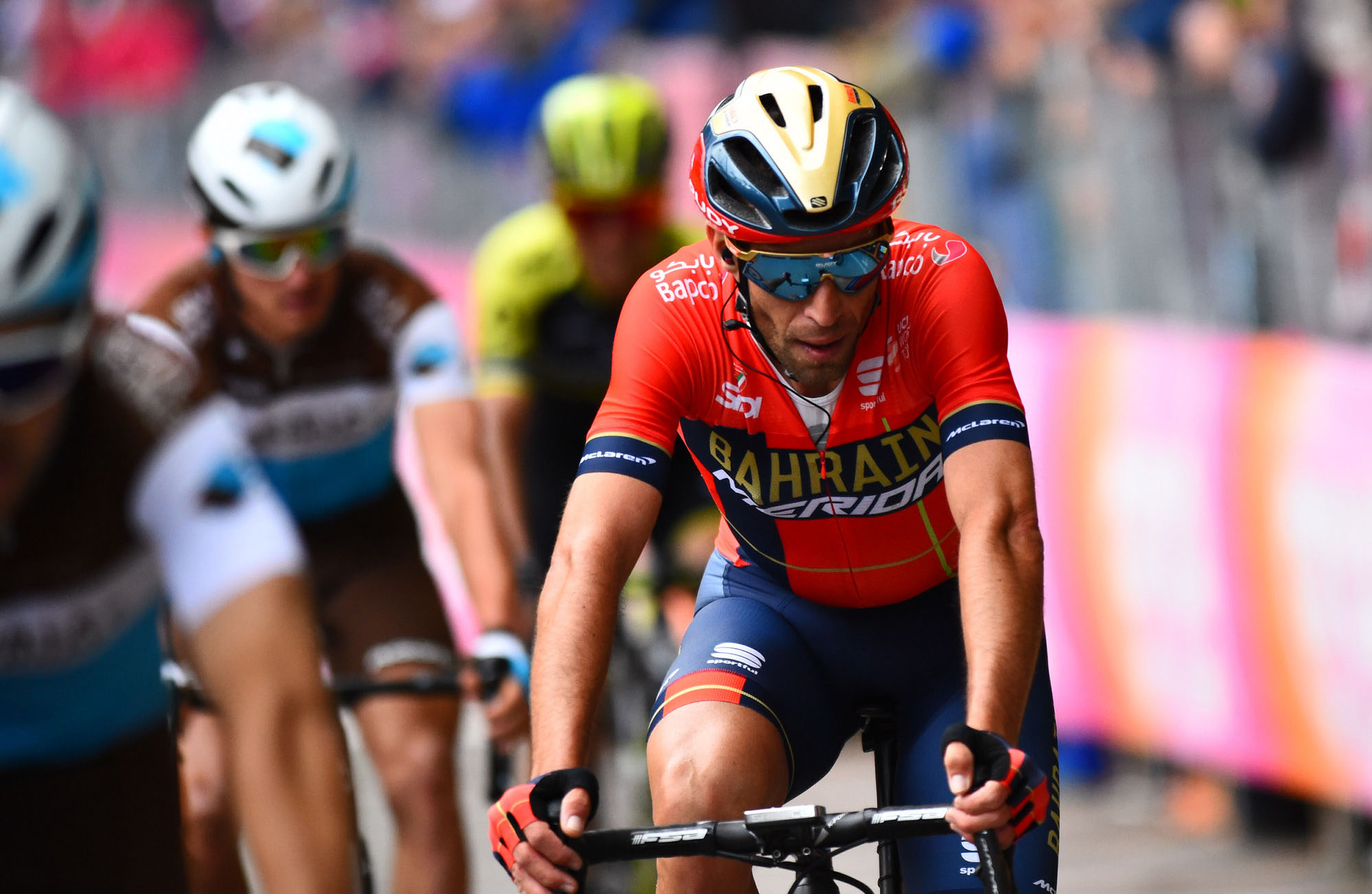
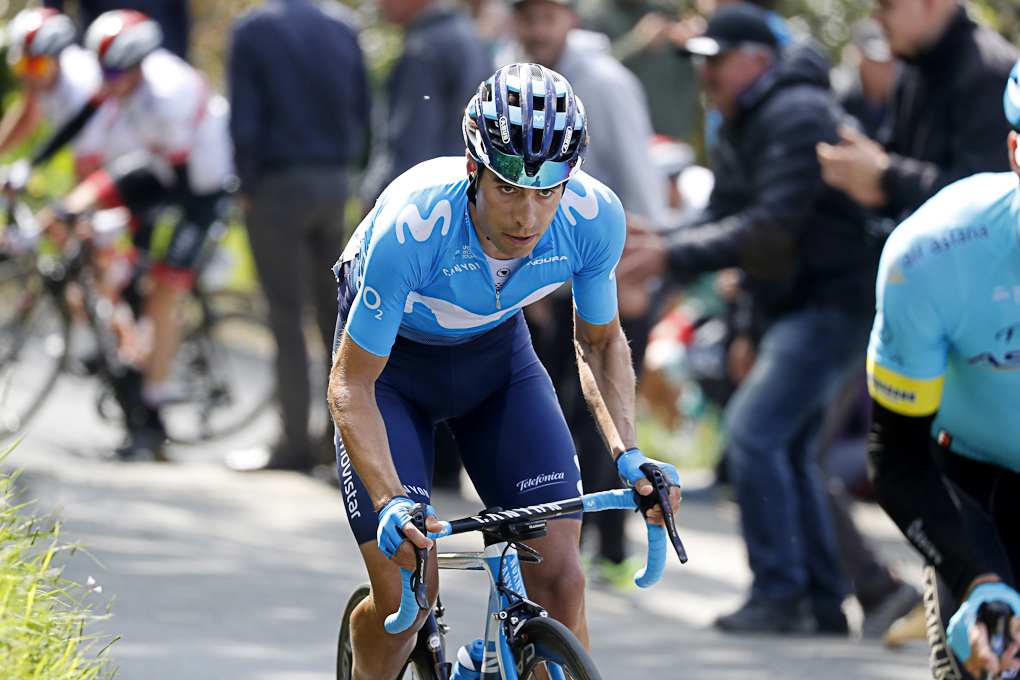
Heaven, sang David Byrne, is a place where nothing ever happens. The Giro d’Italia may be, as RCS Sport have long insisted on telling us, the toughest race in the world’s most beautiful place, but there are no terrestrial paradises on offer for the men with designs on final overall victory: anything can happen on any given day, and it usually does.
When the Giro d'Italia route was unveiled in Milan last October, some voiced concerns that the relatively flat beginning to the race would make for a monotonous opening ten days before the event truly ignited in the Alps. Such thoughts seem absurd following the fraught finale to stage 4 in Frascati, where Tom Dumoulin’s overall challenge already seems doomed after he came down in a mass crash with 6 kilometres remaining and conceded more than four minutes to maglia rosa Primoz Roglic (Jumbo-Visma).
The Giro in the modern era is relentless. At the start of stage 4 in Orbetello, Tom Dumoulin (Sunweb) told Cyclingnews that an opening week bereft of mountain stages was “easy physically but mentally not so easy.” The problem, he continued, was that “right now, everybody thinks he can still win, so it’s pretty nervous in the bunch.”
Those words would seem cruelly prescient a little over six hours later. Dumoulin, as he has been all week, was posited towards the head of the peloton on the run-in to Frascati, but he was powerless to avoid hitting the ground when Salvatore Puccio (Team Ineos) crashed a couple of places in front of him.
Although Dumoulin remounted and gave forlorn chase, he came home more than four minutes down and now lies 56th overall, some 4:30 behind Roglic. The Giro has seen some startling late turnarounds in recent years, but it seems fanciful to imagine that Dumoulin will join their number.
“The rankings are over,” Dumoulin said afterwards, and it now remains to be seen if he will continue in the race at all. Although he sustained no fractures in the crash, he was left with swollen and bloodied knees and appeared in considerable distress on crossing the line in Frascati.
A Sunweb soigneur guided him carefully through the maelstrom of television crews in the finish area but Dumoulin’s pain was such that he could scarcely turn the pedals over to make his way to the team bus. Instead, the soigneur had to keep a hand on the small of Dumoulin’s back and push him all the way up the cobbled hill past the finish, before the Dutchman freewheeled gingerly over the other side.
The latest race content, interviews, features, reviews and expert buying guides, direct to your inbox!
Like Nibali, Dumoulin is scheduled to ride both the Giro and the Tour de France this season. With a second overall victory now seemingly out of reach, it would be imminently understandable if he – and his team – now turned their thoughts to July rather than suffer on needlessly here.
Giro d'Italia Latest News
- Giro d'Italia stage 4 race report
- Tom Dumoulin: My Giro d'Italia GC challenge is over
- Giro d'Italia 2019: Stage 4 finish line quotes
- Giro d'Italia stage 4: As it happened
- Landa apologises after calling Simon Yates 'mentally retarded'
- Simon Yates crashes and loses time in fraught Giro d'Italia finale
- Roglic avoids 'unnecessary bad things' to extend Giro d’Italia lead
Nibali and Yates lose a round but fight on
The crash with 6 kilometres remaining served to split the peloton and, of the podium contenders, only pink jersey Primoz Roglic (Jumbo-Visma) and stage winner Richard Carapaz (Movistar) succeeded in making the select front group of eight riders that eventually disputed the honours.
When Vincenzo Nibali (Bahrain-Merida), Simon Yates (Mitchelton-Scott) and Miguel Angel Lopez (Astana) saw the maglia rosa disappear from view in those breathless final kilometres, the overwhelming emotion must have been panic. Yates was a faller but showed notable strength to finish with Lopez and Nibali. When the dust settles on Tuesday evening, the overriding feeling will surely be one of relief: as Dumoulin’s travails showed, it could have gone an awful lot worse.
Yates, Nibali and Lopez were part of a small group that limited their losses to 18 seconds on Carapaz and 16 seconds on the maglia rosa himself. In the short term, it means that they now trail Roglic by 35, 39 and 44 seconds, respectively. In the grand scheme of things, however, they remain more or less where they were, the best of the rest behind the implacable Roglic, and still poised to challenge him when the terrain grows more rugged from stage 13 onwards.
Nibali, in particular, will be counting his blessings. He was directly behind Puccio when the Sky rider began to fall, but – not for the first time – he exhibited impeccable dexterity to swerve around the crash. The loss of momentum cost him a place in the front group, and he thus concedes a round to the Slovenian, but he remains resolutely in the fight. And that, ultimately, is the name of the game in these opening skirmishes.
Roglic calm in the eye of storm
Most riders had some form of war story to recount when they drifted to a halt at the bus parking on Viale Conti di Tuscolo after the stage, but Roglic was among the happy few to avoid the carnage in the finale. Indeed, when the Slovenian sat down for his post-stage press conference, he admitted that he was completely oblivious to what had transpired.
“I guess I was more in the front because I didn’t see any of the crashes,” Roglic said, not boastfully, but as a simple statement of fact.
Much has been written about Roglic’s late vocation as a cyclist, but for a relative neophyte, he manoeuvres with considerable confidence in the peloton. It helps, of course, that he is marshalled by a strong Jumbo-Visma team at all turns, but Roglic’s calm has been evident throughout these opening days. The hellish final week will be the ultimate arbiter, of course, but pressure seems unlikely to be the beating of him.
There was rather less calm on show at the Movistar bus, where Mikel Landa used some ill-chosen words to make a stinging criticism of Yates’ bike handling. He blamed the Briton for the crash that cost him 44 seconds and now leaves him 22nd overall, 1:49, though he later apologised for his outburst on Twitter.
Perhaps more pertinently, Landa now finds himself behind his teammate Richard Carapaz, who moves up to 16th overall, 1:21 down. Fourth overall a year ago, Carapaz will privately harbour hopes of a podium finish this time out, though he dutifully followed the party line on Tuesday night. “Nothing changes, Mikel is still the leader,” he insisted. “Besides, there are a lot of tricky stages to come and a lot of hard mountains too.”
In short – and as ever – anything can happen at the Giro.

Barry Ryan was Head of Features at Cyclingnews. He has covered professional cycling since 2010, reporting from the Tour de France, Giro d’Italia and events from Argentina to Japan. His writing has appeared in The Independent, Procycling and Cycling Plus. He is the author of The Ascent: Sean Kelly, Stephen Roche and the Rise of Irish Cycling’s Golden Generation, published by Gill Books.